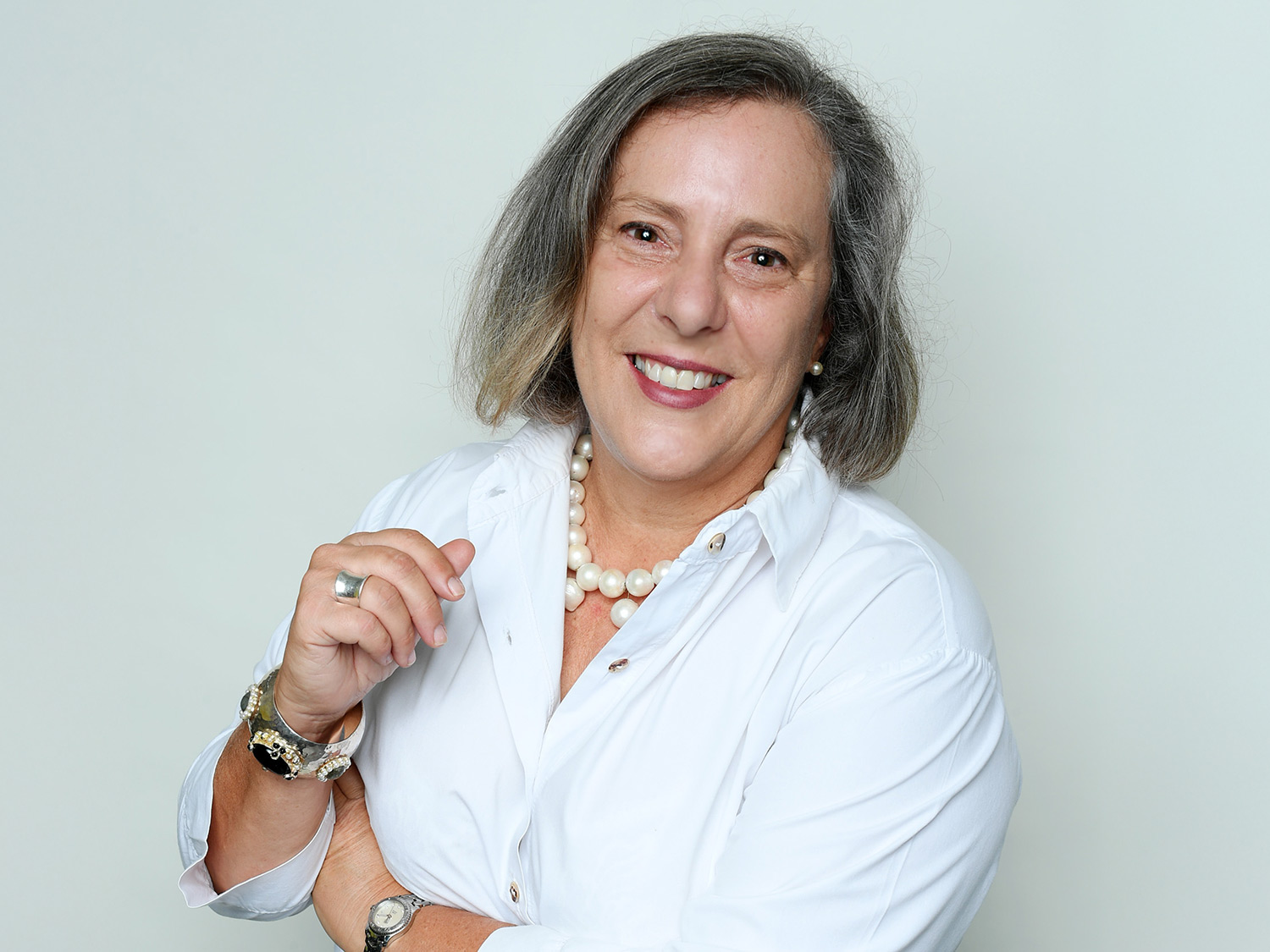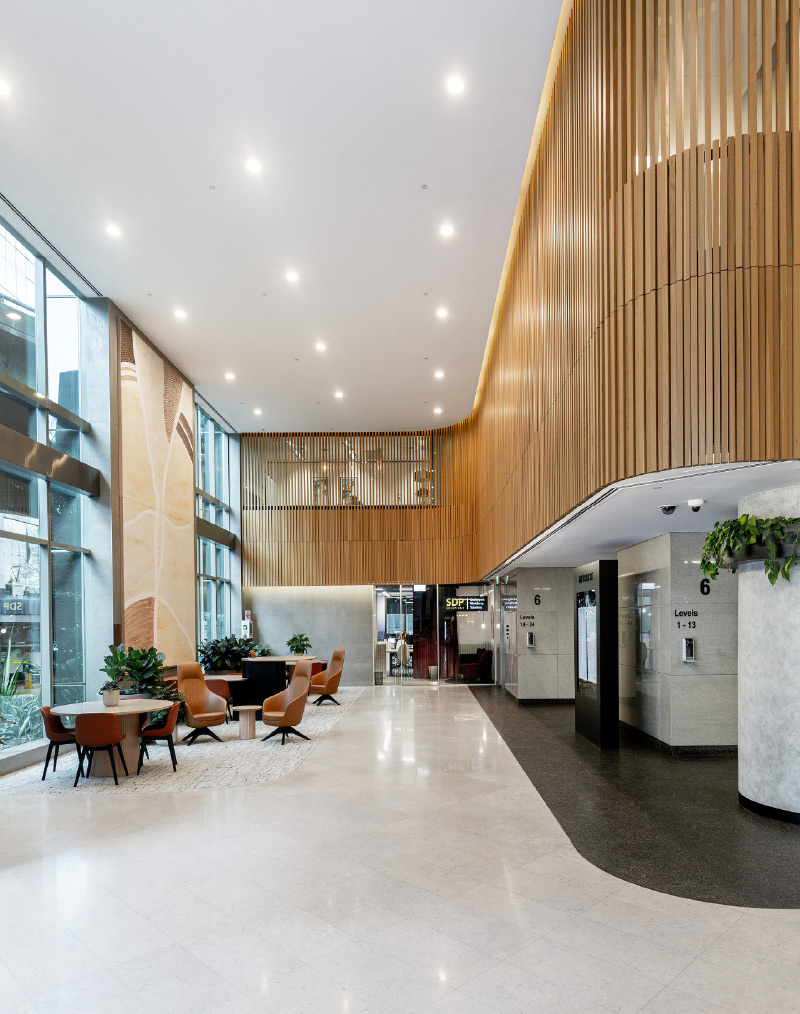In conversation with… Michelle Dance
Chief Financial Officer, Cromwell Property Group

Chief Financial Officer, Cromwell Property Group
Skilled in navigating capital markets, portfolio and funds management, as well as debt origination and arrangement, Michelle has been with Cromwell for more than two-and-a-half years – recently stepping into the CFO role.
Michelle holds a Bachelor of Economics from the University of Queensland, as well as a Master of Commerce, Economics, and Finance from the University of New South Wales.


My favourite subjects at school were economics and English – I had the same teacher for both, who was quite an inspirational woman. As I was finishing high school, I decided that I didn’t want to be a teacher, which seemed to be the only clear career path for someone who was considering studying English literature at university. And so, economics became the most logical path for me to take, given my love for the subject – and it’s a love that’s still there today.
As I was studying economics at university, I got it into my head that I wanted to be a dealer, working in dealing rooms. I don’t even think that, at the time, I had a clear idea of what that meant – but it sounded like a lot of fun.
When I finished university, a recruiter friend set up a series of job interviews at various brokerage houses and dealing rooms around Sydney. The day that I flew into Sydney from Brisbane for my interviews was 19 October 1987 – Black Monday.
I remember walking into dealing rooms for job interviews that day, and the interviewers being close tears; people shouting and screaming around the offices; people running out of my interviews to scream at other people and then coming back in to continue our conversation. It was quite dramatic!
It was only really the next morning when I opened the newspaper that I realised exactly what I’d been witnessing. Regardless, I was offered a job as a trainee dealer at CSR and I moved to Sydney the day after my 20th birthday.
I spent the first decade of my career working in dealing rooms in corporate group treasury roles. It was exciting – it was all the things that I’d learned about in economics at school and university playing out in in real life, in real-time.
Here I was, a very young kid from the suburbs in Brisbane, suddenly dealing with vast, vast quantities of money. And it was kind of intoxicating – I just loved it.
 2. What appealed to you about joining Cromwell Property Group?
2. What appealed to you about joining Cromwell Property Group?One of the key things that I’ve learned is that your level of happiness in an organisation is very much dependent on the work that you’re doing – but it’s equally impacted by the culture of the organisation. You can be doing exciting work, but, if the culture that doesn’t work for you, it can be a pretty unhappy experience.
So, all the questions I asked of Cromwell and the leadership team during the interview process were about the culture that they wanted to build and, very quickly, that line of questioning became, “what is the culture that we’re going to create together?”
And so, I made the decision to join an organisation where I could see such enormous potential – if we could reset the culture and really embrace what Cromwell had been in the past – a really nimble, exciting property manager – then we had the ability to reestablish something that was pretty exciting.
In the years since, we’ve been fortunate to foster the kind of culture that we want to work in, and the kind of business that we would have been really excited about joining when we were starting our careers.
I love the CFO role – I’m really, really enjoying it.
Over the past year, we’ve made incredible inroads into getting the balance sheet into the position you’d want it in at this point of the real estate cycle. We’ve had far too much capital invested in Europe, and our gearing was way higher than we wanted it to be. We’ve exited non-core investments in Australia, but the exit from Europe is the real game changer.
The interest rate environment has been as challenging as the property market; and working with the team to refine how we manage our interest rate risk has been important too.
Obviously, having less debt in the first place makes us less sensitive to movements in interest rates, which is a good start.
While the improvement to the balance sheet is incredibly rewarding – and critical to being able to grow returns for our investors – where I get a real buzz is from the people I get to work with, the role is about people more than anything else. You can’t achieve superior financial performance without great people and a positive culture.
Cromwell has a large and very diverse finance team, and I’m responsible for supporting these incredible people to be themselves; to give them the space to grow and do more of what they do well.
The CFO role is really about strategy and people and relationships – I feel incredibly lucky to lead such an incredible group of finance professionals.
 4. The last few years have been challenging for markets across the world – how does the current environment compare to previous market downturns that you’ve helped guide organisations through?
4. The last few years have been challenging for markets across the world – how does the current environment compare to previous market downturns that you’ve helped guide organisations through?There’s a principle derived from a quote in Leo Tolstoy’s Anna Karenina, which essentially says that all families are functional and happy in the same way, but they’re dysfunctional and unhappy in their own individual ways.
Markets cycles are a little bit the same – when markets are trending in a bullish direction, cap rates are compressed; interest rates are low; money is easy; life is easy.
It’s when markets turn that you really learn a lot about the environment you’re working in – you get to find out who’s really good at what they do, and you learn a lot more about the character of the people that you work with.
I’ve been through several market cycles – I started working the aftermath of the stock market collapse of 1987; through the challenges of the real estate market in the early 90s; and I worked through the Global Financial Crisis.
The cycle we’re going through at the moment is similar to other previous real estate cycles that I’ve experienced.
Traditionally in downcycles, the risk premium that gets eroded when everyone’s buying reappears. And it’s normal that you should have a risk premium – you should have a higher return from a riskier investment than a safer investment. People forget that when you’re in a very bullish market – I think we’re seeing that at the moment.
Having said that, there are two key differences in the current market when compared to the Global Financial Crisis, for instance.
One is that the market is still very liquid – the banks are very healthy, you can get money. At the moment, the debt markets are functioning perfectly well.
By contrast, the GFC was very much about the banks having no liquidity. You had strongly performing assets, but you had very distressed owners because they couldn’t get access to capital.
Secondly, for those of us who primarily own office buildings – we’re experiencing what retail experienced when people figured out that they could shop on their mobile phones.
It didn’t mean that all shops ceased to exist, it meant that bad shops ceased to have a reason to exist.
Office space is currently going through the same thing.
For many years, we’ve been working towards a more flexible working environment – I think that’s really important for employees, and I think it’s really important for employers, too.
Because of the aging population, anything that can be done to grow the pool of available labour – like offering hybrid working – is good for employers.
What hybrid working means for providers of office space is that we’re no longer just competing with other providers – we’re also competing with people’s lounge rooms. So, there’s a structural element to what’s happening in the property market currently, compared to previous cycles.
As a business, Cromwell is always working to make sure that we meet the specific needs of our tenants. We’re continuing to be adaptable and cater for tenants with changing needs, and we’re also making sure that we spend our money wisely on attractive places for people to come and enjoy.
The sale of the European platform is extremely significant for the future of our business. It was important for us to realise that operating in Europe wasn’t benefitting the business or our investors to our expected standard, and that it was instead prudent to focus on the things that we’re good at, in the markets that we know.
Since we ventured into Europe, it had become very difficult for the market to understand who we were and how our business worked. We were a Brisbane-based asset and fund manager that was buying assets across Europe; investing in a vehicle in Singapore; and investing in shopping centres in Poland. This made it hard for us to engage with equity markets.
So, getting out of Europe achieves a few things – one it completes our simplification strategy which was executed to bring us back to our core sectors and markets, and make Cromwell attractive to investors once again.
Secondly, it brings back a huge amount of capital that we can reinvest in growing our Australian business.
A lot of our peers are still going through the de-gearing process; they’re still going through the process of selling assets, and they’re selling assets at the bottom of the cycle. Whereas the Australian assets that we sold were largely sold at the beginning of the cap rate expansion cycle.
So, we’re fairly uniquely positioned to grow our business. I find that incredibly exciting – and the culture that we’ve in place got should enable us to do that.
I see that we’re currently bouncing around the bottom of the real estate valuation cycle – but buildings that are well-located, and that have good amenity, are very well let.
Most of the vacancies in Australia are contained to a very small number of assets. If you look at Melbourne, for example – September 2024 research from JLL finds that just over 60% of vacancy in Melbourne was across 38 buildings. So, it’s very concentrated.
Importantly, we know the sorts of things that are attractive to retaining tenants – our leasing team and asset management team are amazing. You just have to look at the incredible third spaces we’ve created, like at our 400 George Street asset; the end-of-trip facilities in buildings across our portfolio; or the ESG upgrades that we’ve completed in the past 12 months and you get a sense of what we can accomplish.
We’ve also identified a number of key areas of investment going forward. In particular, we see really good opportunity in non-discretionary retail – there’s really good opportunity to generate really good returns in that space, as well as in the small lot industrial space.
It’s not our aim to establish billion-dollar funds to compete with the likes of Dexus and Mirvac – our intention is very much to focus on the things that we’ve always been good at: repositioning of assets, finding stuff that other people don’t know what to do with, and then just managing it really well. We’re good at that!
The people! The people are awesome.
I’ve been reflecting on this recently – there are very few moments in my career – very few organisations I’ve worked for – where the executive team all like each other. It is shocking how rare that is.
In other organisations, that factionalism in executive committees filters down and just infects the culture with this really quite toxic feeling. And Cromwell just doesn’t have that.
I love working with everyone at Cromwell – it’s an awesome place.
Information on commercial property investing, plus the latest industry research and insights, are available on our learn page to help you start planning your investment journey.